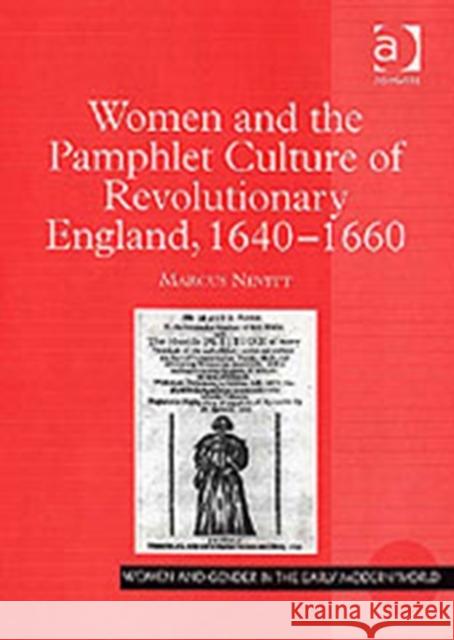Women and the Pamphlet Culture of Revolutionary England, 1640-1660 » książka
Women and the Pamphlet Culture of Revolutionary England, 1640-1660
ISBN-13: 9780754641155 / Angielski / Twarda / 2006 / 232 str.
Women and the Pamphlet Culture of Revolutionary England, 1640-1660
ISBN-13: 9780754641155 / Angielski / Twarda / 2006 / 232 str.
(netto: 695,40 VAT: 5%)
Najniższa cena z 30 dni: 705,23
ok. 22 dni roboczych.
Darmowa dostawa!
Offering an analysis of the ways in which groups of non-aristocratic women circumvented a number of interdictions against female participation in the pamphlet culture of revolutionary England, this book is primarily a study of female agency. Despite the fact that pamphlets, or cheap unbound books, have recently been located among the most inclusive or democratic aspects of the social life of early modern England, this study provides a more gender-sensitive picture. Marcus Nevitt argues instead that throughout the revolutionary decades pamphlet culture was actually constructed around the public silence and exclusion of women. In support of his thesis, he discusses more familiar seventeenth-century authors such as John Milton, John Selden and Thomas Edwards in relation to the less canonical but equally forceful writings of Katherine Chidley, Elizabeth Poole, Mary Pope, 'Parliament Joan' and a large number of Quaker women. This is the first sustained study of the relationship between female agency and cheap print throughout the revolutionary decades 1640 to 1660. It adds to the study of gender in the field of the English Revolution by engaging with recent work in the history of the book, stressing the materiality of texts and the means and physical processes by which women's writing emerged through the printing press and networks of publication and dissemination. It will stimulate welcome debate about the nature and limits of discursive freedom in the early modern period, and for women in particular.











